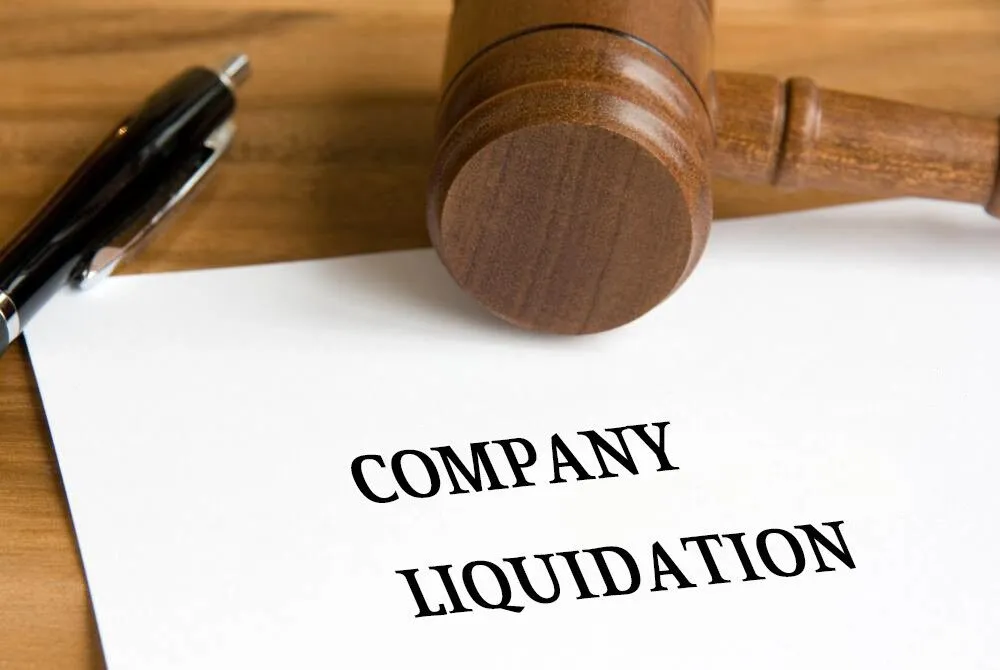Are you from Southern Africa and planning to start an agriculture commodities business in the UAE? Do you want to know the whole process of setting up a trading business in the UAE? Then, you have come to the right place. Since the UAE’s government has placed a high priority on food security over the past few years, there have been a lot of chances for agricultural businesses there. The national food and agricultural production capacities are being increased by the government.
Many cities of southern Africa are rich in agricultural resources but due to less awareness not able to perform commodities well. In this article, you will get to know the whole process of setting up a commodities business in UAE and all the formalities related to it. So, let’s get started.
Why you should consider starting an agriculture commodities business in UAE
The UAE government is committed to promoting economic growth and development and has implemented several policies to support businesses. This includes policies that promote entrepreneurship, foreign investment, and trade. The government also provides several incentives to attract businesses to the country, including tax exemptions, investment visas, and access to financing, some of them are explained briefly below:
- The UAE is situated at the crossroads of Europe, Asia, and Africa, making it a strategic location for international trade. It provides easy access to markets in the Middle East, Asia, and Africa, which are some of the world’s fastest-growing economies. The UAE is also a hub for air and sea transportation, with world-class airports and seaports that facilitate trade.
- One of the most significant advantages of doing business in the UAE is the tax benefits. There are no corporate or income taxes imposed on businesses, which makes the UAE an attractive destination for entrepreneurs looking to minimize their tax burden. This tax-free environment creates a significant competitive advantage for businesses, allowing them to reinvest their profits and grow their businesses.
- The UAE is a politically stable country, with a strong and stable government that is committed to economic growth and development. The country has a well-established legal system that is based on the principles of transparency and accountability. This political stability creates a favourable environment for businesses to operate in, providing a secure environment for investments and trade.
- The UAE has a world-class infrastructure, which is essential for businesses looking to operate in a modern and efficient environment. The country has invested heavily in its transportation networks, including modern airports, seaports, and road networks. It also has state-of-the-art telecommunications systems, high-speed internet, and top-quality office spaces. This infrastructure creates a business-friendly environment that attracts entrepreneurs and investors from all over the world.
- The UAE has a well-developed financial system, with many local and international banks operating in the country. This provides easy access to financing for businesses looking to start or expand their operations. The UAE government also provides several incentives to attract foreign investment, including investment visas, free zones, and low-interest loans.
- The UAE is a multicultural society, with people from all over the world living and working in the country. This creates a diverse and cosmopolitan environment, which can be an advantage for businesses looking to attract talent from different backgrounds. The UAE also has a highly skilled workforce, with a large pool of talented professionals in various fields.
- The UAE has a rapidly growing population, which has led to an increased demand for food. The country imports most of its food, which presents an opportunity for businesses looking to trade in agricultural commodities. The UAE government has implemented several initiatives to promote food security, including investing in local agriculture and supporting small and medium-sized enterprises in the sector.
In summary, setting up an agriculture commodities business in the UAE provides several advantages, including a strategic location for international trade, tax benefits, political stability, world-class infrastructure, easy access to financing, a multicultural environment, a growing demand for food, and supportive government policies.
Advantages of Setting up a Commodity Trading Business in the UAE
Before we dive into the process of setting up an agriculture commodities business in the UAE, let’s discuss the advantages of setting up a trading business in the UAE. The UAE is a hub for international trade and commerce, and there are many advantages of setting up a trading business in the UAE, including:
- Strategic Location: The UAE is strategically located between Europe, Asia, and Africa, making it an ideal location for trading between these regions.
- Tax Benefits: The UAE offers tax-free trading, making it a popular destination for businesses looking to save on taxes.
- Political Stability: The UAE is a politically stable country, which means that businesses can operate without the fear of political instability affecting their operations.
- World-Class Infrastructure: The UAE has world-class infrastructure, including ports, airports, and roads, making it an ideal location for trading.
- Easy Access to Financing: The UAE has a well-developed banking sector, which makes it easy for businesses to access financing.
- Multicultural Environment: The UAE has a multicultural environment, making it easy for businesses to hire talent from around the world.
Process of Setting up an Agriculture Commodities Business in the UAE
Now that we have discussed the advantages of setting up a trading business in the UAE, let’s dive into the process of setting up an agriculture commodities business in the UAE. The process involves the following steps:
u003cbru003eu003cstrongu003eStep 1: Choose the Right Business Structureu003c/strongu003e
The first step in setting up an agriculture commodities business in the UAE is to choose the right business structure. The most common business structures in the UAE are a u003ca href=u0022https://www.dubaibusinessadvisors.com/blog/company-setup/how-to-set-up-an-llc-company-in-dubai/u0022 target=u0022_blanku0022 rel=u0022noreferrer noopeneru0022u003eLimited Liability Company (LLC)u003c/au003e and a u003ca href=u0022https://www.dubaibusinessadvisors.com/blog/latest-news-press-releases/7-best-freezones-in-uae-to-start-your-business-2023update/u0022 target=u0022_blanku0022 rel=u0022noreferrer noopeneru0022u003eFree Zone Companyu003c/au003e. u003cbru003eu003cbru003eAn LLC is a company that is owned by two or more shareholders and is required to have a local sponsor. A Free Zone Company is a company that is 100% owned by a foreign investor and is allowed to operate within a specific free zone in the UAE.
u003cstrongu003eStep 2: Choose the Right Locationu003c/strongu003e
The second step in setting up an agriculture commodities business in the UAE is to choose the right location. The UAE has many free zones that are specifically designed for trading and commerce, such as the Jebel Ali Free Zone and the Dubai Multi-Commodities Centre. u003cbru003eu003cbru003eThese free zones offer many advantages, including tax benefits, 100% ownership by foreign investors, and easy access to world-class infrastructure.
u003cstrongu003eStep 3: Register Your Businessu003c/strongu003e
The third step in setting up an agriculture commodities business in the UAE is to register your business. This involves obtaining a trade license, registering your business with the relevant authorities, and obtaining any necessary permits.
u003cstrongu003eStep 4: Open a Bank Accountu003c/strongu003e
The fourth step in setting up an agriculture commodities business in the UAE is to open a bank account. This involves choosing a bank that meets your needs, providing the required documentation, and completing the necessary paperwork.
u003cstrongu003eStep 5: Obtain the Necessary Permits and Licensesu003c/strongu003e
u003cbru003eThe fifth step in setting up an agriculture commodities business in the process is to obtain the necessary permits and licenses. The permits and licenses required to depend on the nature of your business and the products you plan to trade. u003cbru003eu003cbru003eSome of the permits and licenses required for an agriculture commodities business in the UAE include a customs code, an import/export license, and a food trade license.
u003cstrongu003eStep 6: Find a Local Sponsoru003c/strongu003e
If you decide to set up an LLC, you will need to find a local sponsor who will hold 51% of the shares in your company. The local sponsor must be a UAE national, and their role is to act as a local partner and provide support with government-related procedures.
u003cstrongu003eStep 7: Hire Employeesu003c/strongu003e
The final step in setting up an agriculture commodities business in the UAE is to hire employees. The UAE has a diverse pool of talent, and you can easily find qualified employees to work in your company. u003cbru003eWhen hiring employees, it is important to ensure that you comply with UAE labour laws, which govern working hours, salaries, and other employment-related matters.
Cost of Starting an Agricultural Business in the UAE?
Depending on your agriculture business activity, you’ll incur a variety of business expenses. A business license may cost you approximately AED 18,000, but additional approval fees may raise the price of starting a business. The cost of launching an agricultural business in the UAE is also influenced by the location of your offices, warehouses, utilities, vegetation and soil assessments, marketing, biological monitoring, and other factors.
Hence, it is impossible to calculate a precise amount. But our experts can assist you with the specific cost of setting up a farm in the UAE. Thus, being aware of your expenses will aid in the planning of your business operations.
u003cstrongu003eDocuments Required to Start an Agricultural Business in the UAEu003c/strongu003e
To start an agriculture commodities business in the UAE, you will need to provide the following documents: u003cbru003ePassport copies of all shareholders and directors u003cbru003eProof of residence of all shareholders and directors u003cbru003eA bank reference letter u003cbru003eProof of the company’s legal address u003cbru003eA business plan u003cbru003eA Memorandum of Association (MOA) u003cbru003eArticles of Association (AOA) u003cbru003eTrade license application u003cbru003ePermit and license applications u003cbru003eLease agreement for the company’s premises
Conclusion
In conclusion, setting up an agriculture commodities business in the UAE can be a profitable venture for entrepreneurs from Southern Africa. The UAE offers many advantages for businesses looking to trade internationally, including a strategic location, tax benefits, political stability, world-class infrastructure, easy access to financing, and a multicultural environment.
The process of setting up a trading business in the UAE involves choosing the right business structure, choosing the right location, registering your business, opening a bank account, obtaining the necessary permits and licenses, finding a local sponsor, and hiring employees.
At Adam Global, we can help you with the entire process of setting up your agriculture commodities business in the UAE. Our team of experienced business setup consultants can guide you through each step of the process, ensuring that your business is set up for success.
So, if you are ready to start your agriculture commodities business in the UAE, contact us today and let us help you achieve your business goals.



